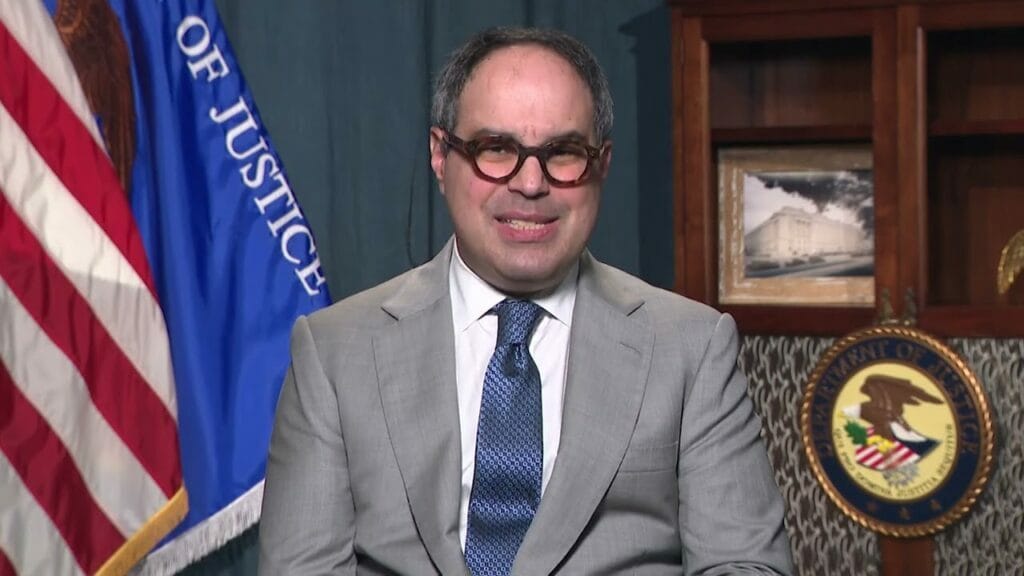Proposed Merger Guidelines, Viasat Satellite Trouble, Fiber Association Partnership
The Federal Trade Commission wants stricter guidelines for mergers after losses in court.
Enoch Eicher

WASHINGTON, July 19, 2023 – The Justice Department and the Federal Trade Commission proposed Wednesday stricter guidelines for Big Tech mergers.
The guidelines are aimed to boost scrutiny of planned mergers by Big Tech companies like Amazon, Microsoft and Alphabet’s Google.
The new guidelines, currently in draft form, encapsulate the agencies’ push to keep pace with the digital age and a changing market. They detailed a revised approach to corporate mergers, updating how markets are defined and expanding what regulators can consider when they approve or block deals. The proposed rules apply to both vertical and horizontal mergers.
As per the FTC, a vertical merger refers to a transaction between two businesses operating in different stages of the supply chain within an industry. On the other hand, horizontal mergers involve companies that either compete directly or operate in similar segments of the market.
“As markets and commercial realities change, it is vital that we adapt our law enforcement tools to keep pace so that we can protect competition in a manner that reflects the intricacies of our modern economy,” Assistant Attorney General Jonathan Kanter said in a statement. “Simply put, competition today looks different than it did 50 — or even 15 — years ago.”
In a briefing on Tuesday, a senior FTC official said the agency heard from judges that they wanted more precision in the guidelines. As a result, the proposed guidelines will include citations to actual cases. The official emphasized the guidelines aren’t new law, but clarify existing case law.
The initial merger guidelines were issued in 1968, but have undergone updates over time. In 2021, the FTC withdrew the previous version of the vertical merger guidelines released in 2020, citing identified flaws as the reason for their withdrawal.
The proposal comes a week after an appeals court denied the FTC’s latest attempt to suspend the $69-billion purchase of video game company Activision Blizzard by Microsoft, which makes Xbox gaming consoles. Before that, in January, the agency lost a lawsuit against Facebook parent Meta over its acquisition of virtual reality company Within Unlimited.
Viasat broadband satellite malfunctions
Viasat’s recently launched ViaSat-3 Americas broadband communications satellite experienced a malfunction on July 12 that could affect its performance, according to a company statement.
“An unexpected event occurred during reflector deployment that may materially impact the performance of the ViaSat-3 Americas satellite,” the company said in a statement “Viasat and its reflector provider are conducting a rigorous review of the development and deployment of the affected reflector to determine its impact and potential remedial measures.”
ViaSat-3 Americas launched from Kennedy Space Center, Florida, on April 30 aboard a SpaceX Falcon Heavy rocket. Plans called for the spacecraft to reach its orbital location within three weeks.
“We’re disappointed by the recent developments,” added Viasat Chairman and CEO Mark Dankberg. “We’re working closely with the reflector’s manufacturer to try to resolve the issue. We sincerely appreciate their focused efforts and commitment.”
The company stated that it is working on refining contingency plans to mitigate the economic impact of the malfunction. Options being considered include redeploying satellites from the existing Viasat fleet to improve coverage and allocating new ViaSat-3 satellites to enhance bandwidth over the Americas.
Further updates on the status of ViaSat-3 Americas and any required contingency measures will be provided during an earnings call set for Aug. 9.
ViaSat-3 Americas is the first of three new ultra-high-capacity Ka-band satellites the company plans to place into geostationary orbit to vastly increase its available capacity and coverage. According to Viasat’s website, each is capable of providing 1 terabit per second of throughput capacity.
Following its acquisition of UK satellite operator Inmarsat, which closed on May 30, Viasat said it has 12 broadband Ka-band satellites in space, with eight additional Ka-band satellites under construction.
Broadband Forum and Fiber Broadband Association partner for improved fiber advancement
Broadband Forum and the Fiber Broadband Association signed an agreement in principle Wednesday to advance high-capacity, low latency fiber broadband capabilities.
The agreement will give the FBA the opportunity to contribute to current and future specification work and represent the needs of fiber broadband providers within the Broadband Forum community in the Americas.
It will also give the FBA’s Technology Committee leadership team increased insight of Broadband Forum’s work across all areas of fiber broadband service delivery from inside the building, across the fiber access network to the cloud, according to a statement.
The FBA is a national association focused solely on connecting every home, business, and community in North and Latin America with fiber broadband.
“We are pleased to sign an agreement in principle with the Fiber Broadband Association and we look forward to its members’ engagement and contributions,” said Ken Ko, Managing Director at Broadband Forum in a statement. “The largest operators have traditionally contributed the most to industry standards, but now, operators of all sizes have a level playing field.”
The Broadband Forum is a non-profit industry consortium dedicated to developing broadband network specifications.
“The Fiber Broadband Association represents the full fiber ecosystem with 51% of their members being Network Operators and the other half represent the supply side of the industry, with the fiber manufacturers, equipment vendors, engineering consultants and deployment specialists, so its value cannot be overstated.”








Member discussion